Recently I’ve been in social situations with my horse and other riders where I’ve been faced with how differently I do things.
I have come to a rift in thinking with most people who ride or work with horses. The popular jargon states that we must “make our horse do things” and “keep the feet moving” and “don’t give up on the activity or the horse will have won.” “I run my horse around in the round pen so I know what kind of horse I have before I ride.”
These phrases have found their way into our vocabulary and are customary and people just nod their heads and accept them. We can’t even track where these phrases came from, but they have become popular truths! They all speak to an adversarial relationship with horses rather than partnership. They do not encourage us to look at the horse’s eyes, or notice how his breath is, or what tension he holds in his body. Or why the horse doesn’t want to participate in a certain activity. They also set up anxiety in the person who feels they must get this performance out of their horse – or else.
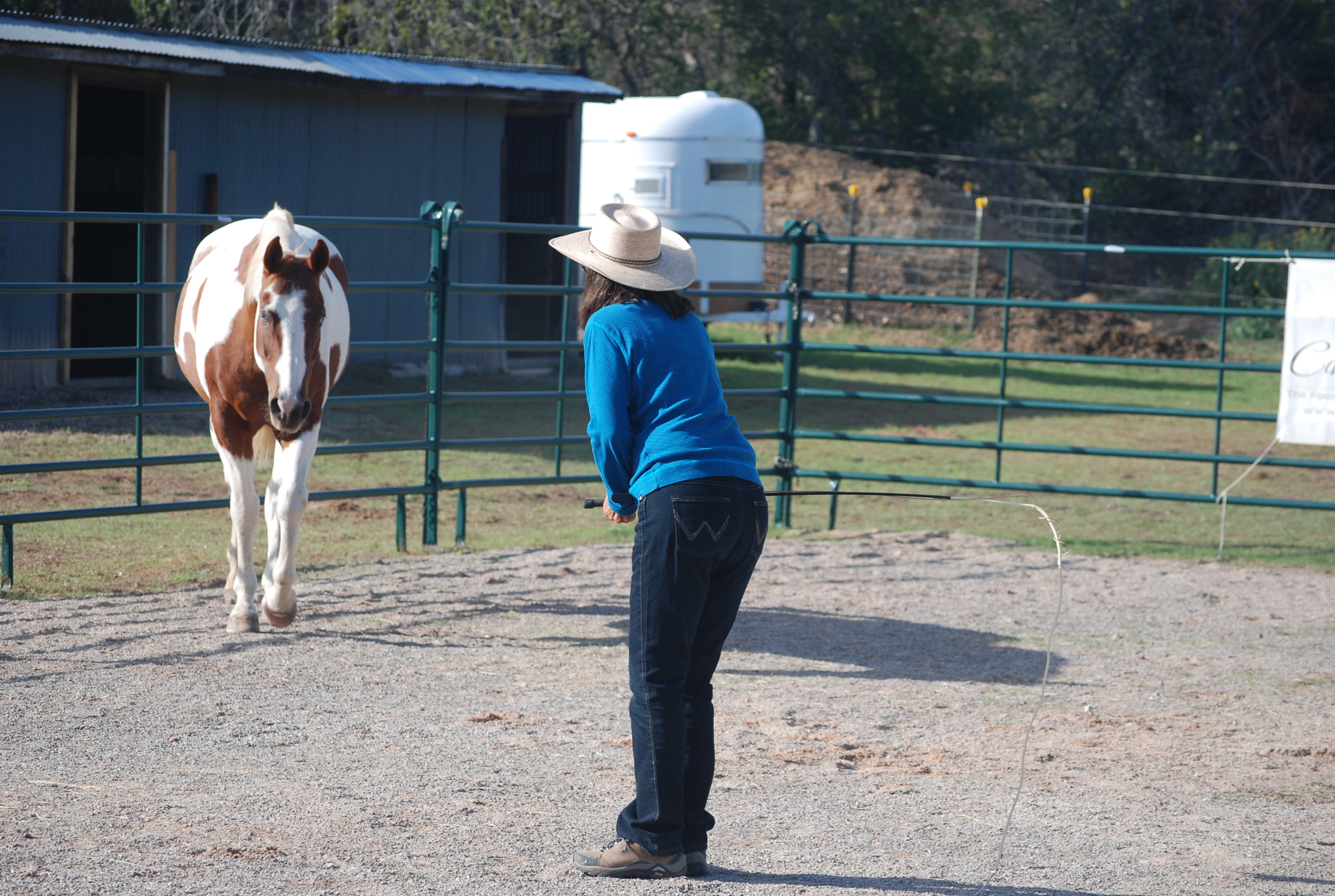 The horse trained this way may be trained, but also may harbor some disappointment or upset because he has never been heard. No one heard, for instance, that I didn’t feel like doing that at this moment. Seeking a particular response sets us in a mindset that doesn’t leave any room for what might happen, and what the horse might inadvertantly offer us. Perhaps what she can offer is only this part of the lesson. Reward her. Praise goes a long way.
The horse trained this way may be trained, but also may harbor some disappointment or upset because he has never been heard. No one heard, for instance, that I didn’t feel like doing that at this moment. Seeking a particular response sets us in a mindset that doesn’t leave any room for what might happen, and what the horse might inadvertantly offer us. Perhaps what she can offer is only this part of the lesson. Reward her. Praise goes a long way.
A lot of times people stop with the very basics and think that it’s enough. I hear this alot: “I’ve taken my horse to x number of clinics and so-and-so (who happens to be a household name in the horse world) says I should do it this way when she does X. I know because this is what I’ve been told by the experts.” People keep doing the same things for the same problems, over and over again. The horse will either get tired of the routine and do what’s asked which most people are content with, or the horse will dig in her heels and do nothing.
Perhaps what I do in certain situations is not seen as effective because it may take awhile and it considers the needs of the horse as well. Sometimes I must get a horse into the trailer at a trailhead because I’ll be late for an appointment, but I’m not going to thrash the horse to get her in there. I’m not going to “make her do it.” And I’m not going to worry about “who wins.”
This is not a competition. There is no winner and loser. That would be awful. Who feels good when they get into an argument with someone and the other person comes away feeling triumphant that they have “won” the argument? Somebody has to succumb to the other in that scenario. Not fun.
It’s not fun for the horse either. He’s being bullied into agreement, or “partnership” of sorts, as some people are fond of calling it, when it’s no partnership at all if both parties aren’t interested in it.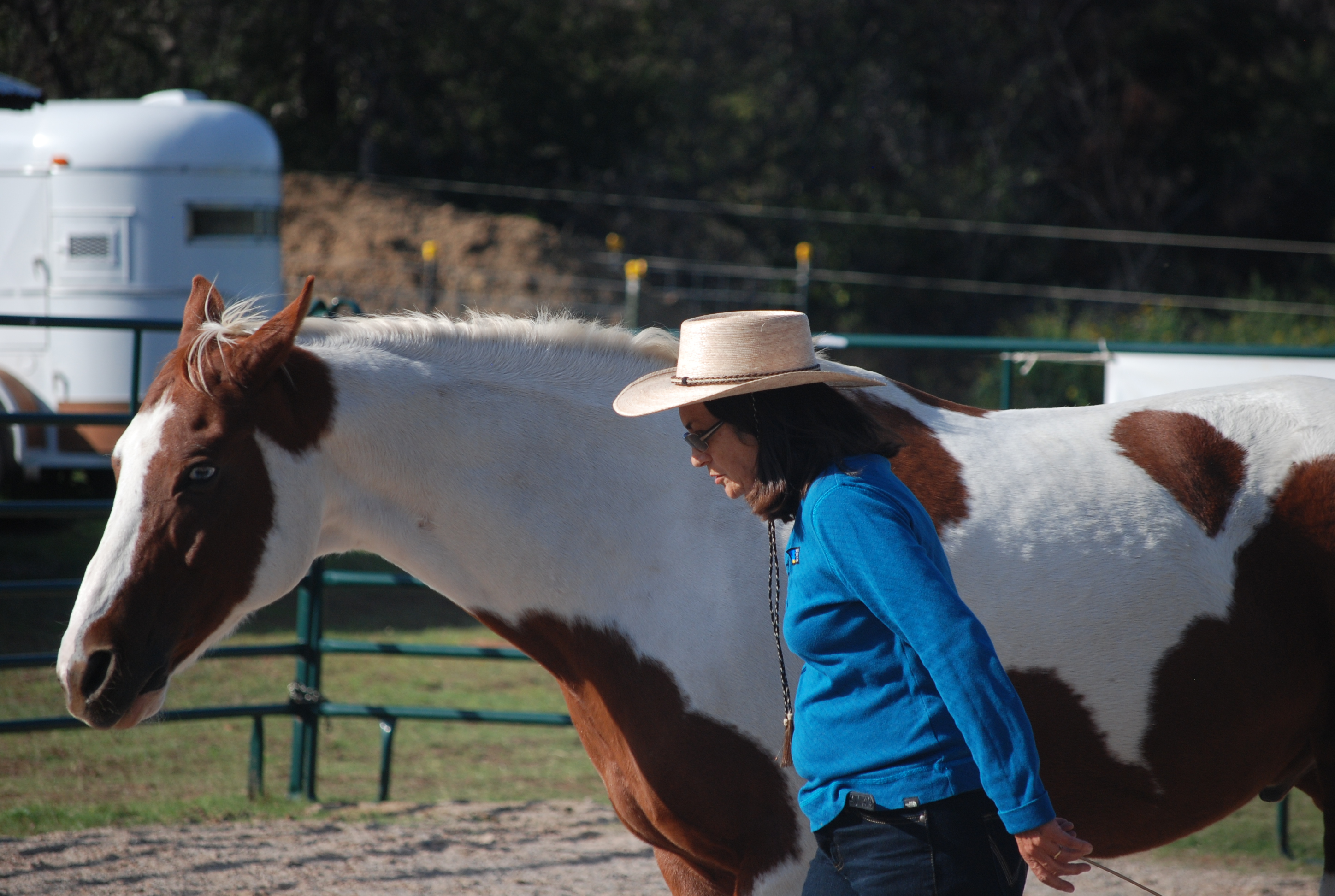
That’s why I talk so much about engaging curiosity in the horse during the time we’re not trying to go from A to B, not trying to win an event, or get home on time. I want that foundation securely in place before I ask for more.
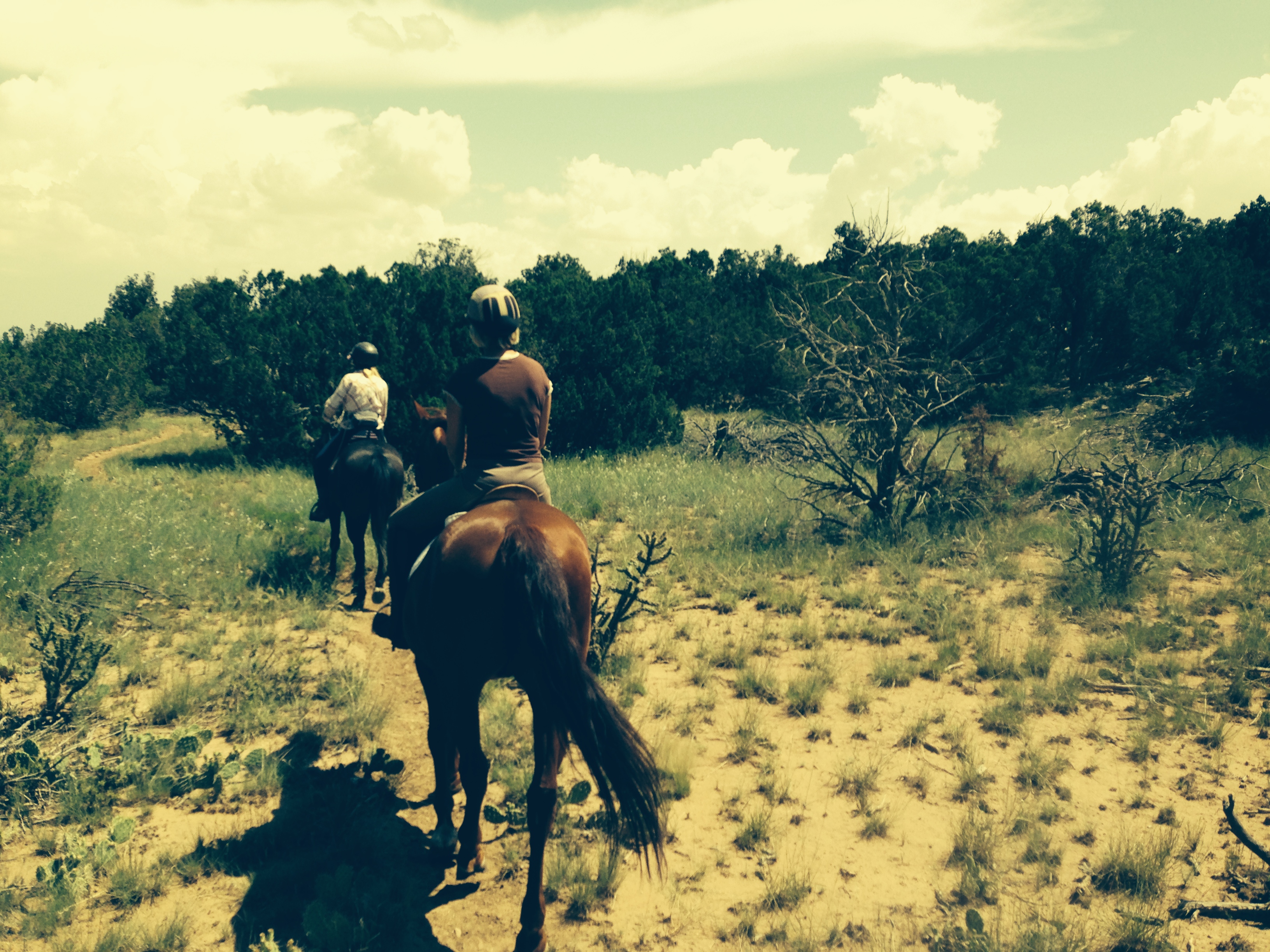 Many of us have studied with different clinicians who have this adversarial view of horse training. No matter how “kind” it looks on the outside, it’s not honoring the horse. Perhaps what I’m saying heretical, but many who are studying these ways are also coming to Liberty Foundation clinics to find out what all this liberty training is about. Obviously something is missing in their programs. Or they are simply curious.
Many of us have studied with different clinicians who have this adversarial view of horse training. No matter how “kind” it looks on the outside, it’s not honoring the horse. Perhaps what I’m saying heretical, but many who are studying these ways are also coming to Liberty Foundation clinics to find out what all this liberty training is about. Obviously something is missing in their programs. Or they are simply curious.
I know for example, that when I ask too much of my horse, I must get something done, the next day I will do something that she really wants to do, to make up for all the asking. Yes, she will give me the world, maybe even if I don’t give back, but I think the giving back is important and encourages her willingness to partner with me in the future. It’s like money in the bank, instead of running on a deficit.
The joy found in doing relationships this way is greater, to me, than winning a blue ribbon or getting through the obstacle course, and top tenning at a ride. But I can do all these things – and more- with a willing horse!
There is a lot of blindness in horse training – to what the horse looks like when accomplishing something. People neglect to notice the eyes, the ears, tension in the body, and all these visible signs, or misread them.
This has not come easily to me. Years ago I didn’t notice when my horse was tiring of an activity, and kept pushing on. I needed to give him a month off. I needed to find out what he really needed from me. But instead, he had to become ill for me to stop, and that happens frequently in competition horses. Our egos take over, when instead, they belong in the back seat so we can be attentive to the horse’s needs.
Most horses used for recreational use are not pushed to their limits physically and mentally, but sometimes they are not treated kindly, because the bottom line is, most people get a horse to ride. They get upset and disappointed when the horse doesn’t live up to their expectations. They get upset when they have to invest more money in training, when they thought the horse was already trained.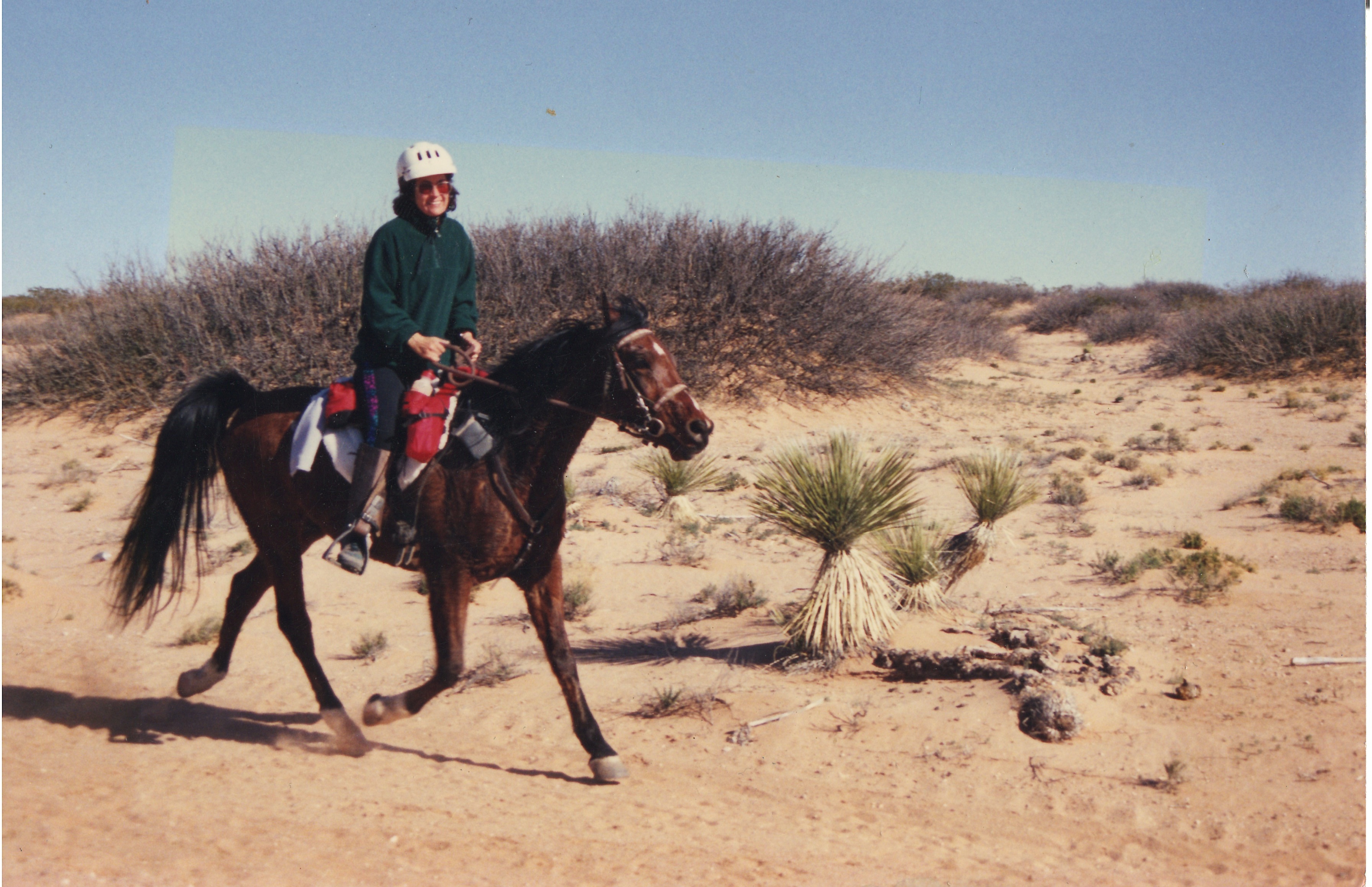
Sometimes, for the horse owner with that attitude, it would be better for them to buy a motorcycle. You don’t have to train the motorcycle, and as long as it is in good condition, it should perform well. Plus, it won’t have a mind of its own.
Next time you find yourself moving into that zone of being pressured by public opinion, remember the horse. Remember what the horse will tell you – with her eyes, ears, breath, action. That attentiveness creates a better relationship with a horse than popular truths.
Related links on Body Language:
My horse likes my trainer better than me
*****
(copyright: Susan Smith, OrthoHorse)
Services: Bodywork (Ortho-Bionomy for people, Equine Ortho-Bionomy): private sessions, tutorials, phone consultations, Horse & Rider sessions, distance healing communication and gift certificates
Liberty Coaching: clinics, mini-clinics, workshops, private and semi-private sessions, tutorials, consultations: by appointment: 505.501.2478 or emailing susansmith@orthohorse.info Scheduling now. Contact me for details.
I’m now putting together the 2015 Clinic Calendar. Let me know if you want to do a clinic at your location. Prices will vary according to location.
Filling Fast!!!! By popular demand, the last Santa Fe 1-Day Liberty Workshop of 2014 will be held at Arrowhead Ranch November 15, from 9:30 a.m.-4:30 p.m. We will work with the natural tendencies of the horse, honoring her/his need for food, safety, space and community. We also work with establishing our place in “the herd.” Cost: Early Bird payment before November 1st: $150, after November 1st: $175.
Who will benefit from this work?
All horses and humans, but specifically:
- Horses who have not responded to traditional natural horsesmanship
- Horses who have been frightened, abused and in other ways traumatized
- Horses who may be aggressive or too passive in their herd situations
- Horses who have problems with humans
- All humans who may be puzzled about relationship with horses and want to deepen their connection.
December 13-14 I will be in DeLand, Florida teaching a Weekend Liberty Clinic. Two spots are available, so please register asap if you want to come! An OrthoHorse Tutorial as well as private lessons and sessions will be offered on Friday, December 12th.
Book your spot today!
January 27-March 10, 2015 – Horses at Liberty Online Advanced will continue the instruction for those students who have taken an introductory online or in-person clinic from me.
The work builds on what has been taught in the introductory course with refining movements, body language, knowing what and when to ask for change, celebrating the horse’s gifts of engagement. Cost: $311
Payment for the Santa Fe 1-Day Liberty Workshop and Advanced Online can be made by check, PayPal or credit card. A PayPal button for each of those events is available on the home page of my website, http://www.orthohorse.info
Susan is a member of the Independent Liberty Trainers Network. libertytrainersnetwork.com/



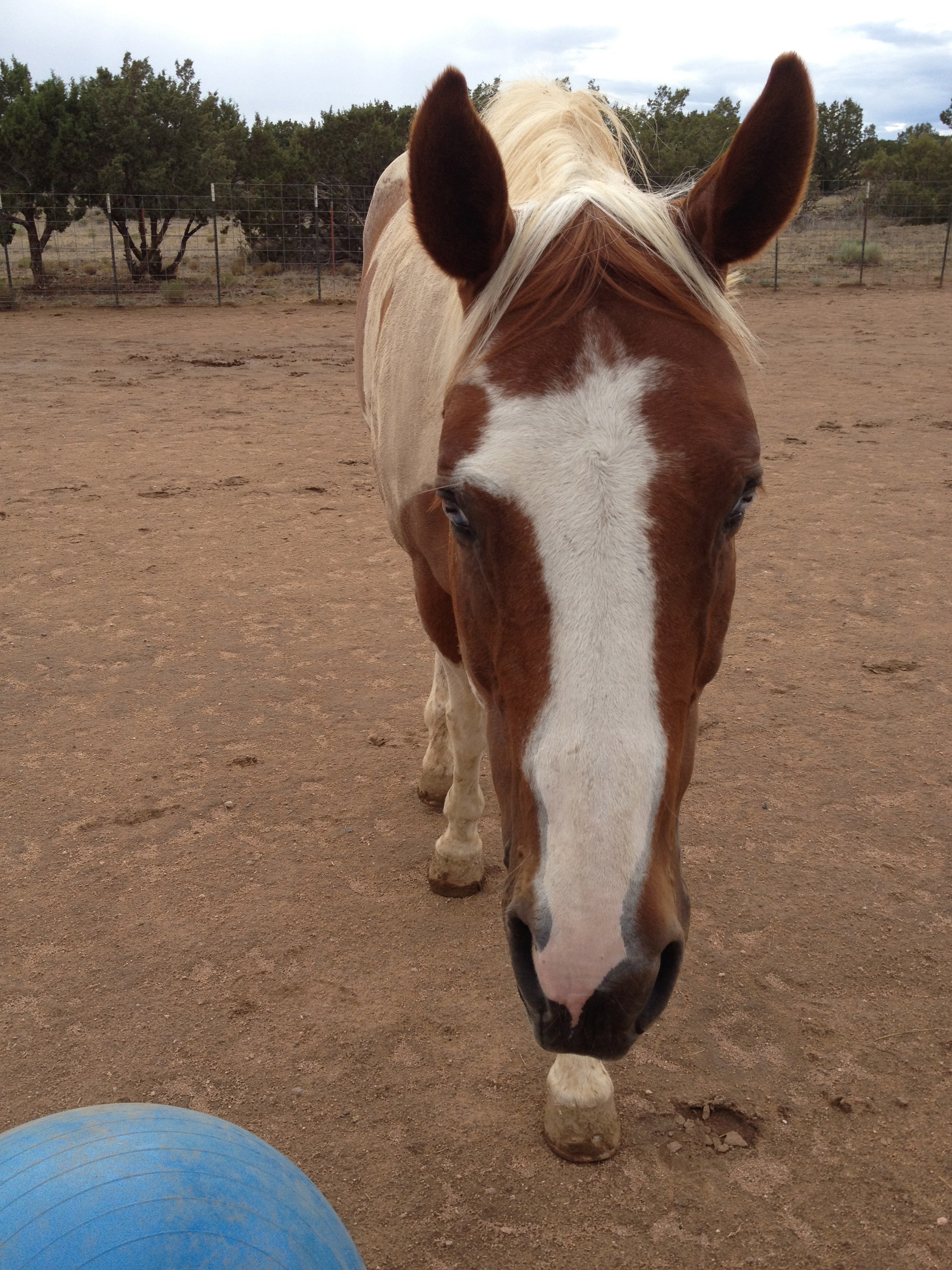
This blog is perfect for our students, who often find themselves in situations with traditional horsemanship students who disagree with our liberty training. You have some handy responses, Susan, which will be helpful to those students just beginning Liberty Foundations work. The horse world is changing rapidly now, with more and more people turning to liberty work as their ‘goto’ preference for training! So exciting for us to be on the cutting edge of this beautiful movement toward peace and joy for the Horse as well as Human!
Ruella Yates
Liberty Foundations
Spirit Horse Ranch
near Oklahoma City
Great post Susan! I totally agree with Ruella when she writes that our horse world is changing and it is changing because of people like you who write their thoughts and dare stand up for their beliefs. I always enjoy reading your posts!
Thank you, Capucine. Yes, I believe growing the community of like-minded people who want to change the way we work with horses and their people will ultimately change the world. So glad we are all a part of the trend!